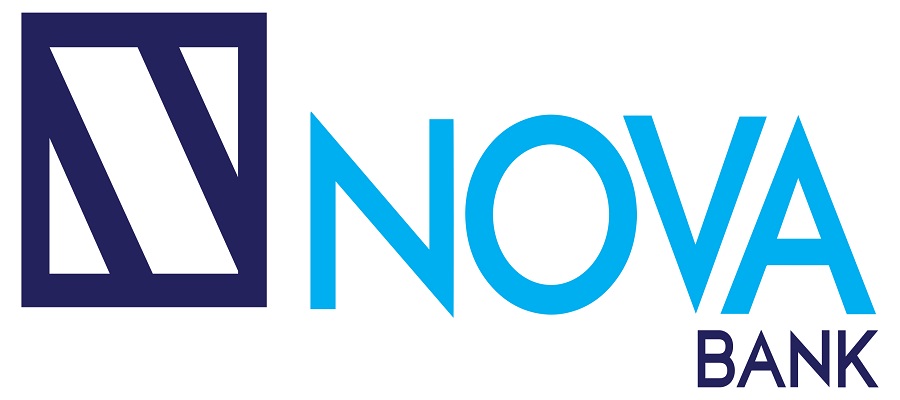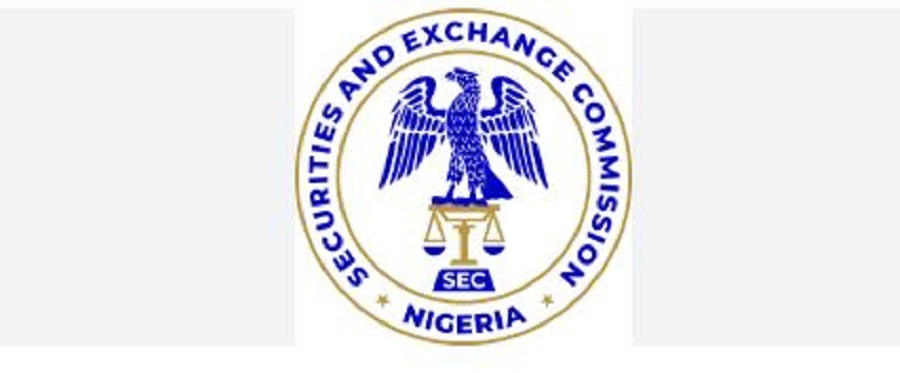E-Financial
Heritage Bank, CBN Drive Improved Investment Outcomes & Job Creation

Heritage bank Plc in collaboration with the Central Bank of Nigeria (CBN), under the Nigerian Incentive-Based Risk Sharing in Agricultural Lending (NIRSAL) has continued to drive improved investment outcomes and job creation.
Through this partnership, Heritage Bank is not relenting in its efforts at boosting the agriculture base of the nation to make farming profitable to stakeholders and attractive to the youth.
Recently, the apex bank approved the disbursement of about N75billion as loan to farmers in the 36 states and the Federal Capital Territory (FCT) under the Nigerian Incentive-Based Risk Sharing in Agricultural Lending (NIRSAL).
The loan guarantee scheme is a public-private sector initiative set up to transform the country’s agricultural sector. It was initiated by the CBN, the Bankers’ Committee and the Federal Ministry of Agriculture and Rural Development, to guarantee 75 per cent loans provided by Deposit Money Banks (DPB) to farmers as part of efforts to transform the country’s agricultural sector.
Speaking on the several CBN intervention scheme and private sectors’ partnerships, which have accumulated to thousands of job creations, Ifie Sekibo, MD/CEO, Heritage Bank, noted, “under the Central Bank of Nigeria’s Anchor Borrowers Programme (ABP) and the Nigeria Incentive-Based Risk Sharing System for Agricultural Lending (NIRSAL),
“Heritage Bank is positioned to provide on-lending funding to aggregated farmers in the 2020 farming season to grow various products that will serve as raw materials to the processors, thereby ensuring market linkages and access to the market as well as reduce importation and conserve Nigeria’s external reserves.”
According to him, Heritage Bank is also supporting the drive for cash crop commodities that would boost Nigeria’s foreign exchange earnings, which President Mohammad Buhari’s administration has always been cautious given the dangers the continuous reliance on imported food items pose to its efforts to create jobs as well as develop and diversify the economy.
No doubt Heritage Bank’s unswerving lending to agriculture sector has earned it deluge of accolades.
To its portfolio Heritage Bank Plc earned the Nigeria’s Most Innovative Banking Service Provider in 2017 and 2018 that were bestowed with the inaugural Nigeria Sustainable Banking Award convened by the CBN “For Sustainable Transaction of The Year in Agriculture.”
The Nigeria Agriculture Awards (NAA), at its annual event convened by AgroNigeria (The Voice of Nigeria’s Agriculture), to appreciate immense efforts of those who have contributed to the success of the agriculture sector in the country, announced Heritage Bank as the Agric. Bank of the Year.
According to NAA, Heritage Bank was selected in recognition of its footprints in the Agric. space, especially the Triton Aquaculture Project.
Also, Heritage Bank Plc which has been adjudged the lead settlement bank for Gezawa Commodity Market (GCMX), has collaborated with key stakeholders to revolutionise the agricultural value-chain.
The collaboration was aimed at providing fully integrated ecosystem for commodity Exchange.
Heritage Bank was appointed the Lead Settlement Bank and Transaction Adviser to GCMX and a memorandum of understanding (MoU) was signed between the two firms, whilst over 10, 000 farmers in 3000 cooperatives in the 44 local governments of Kano States were hosted.
The partnership between Heritage Bank and the Exchange has continued to facilitate the ease of agro commodity trading in a more structured way, especially with the closeness to the Dawanu, the largest grain market in Africa.
E-Financial
NOVA Bank Opens Regional Office in Owerri

NOVA Bank has opened its regional office in Owerri, Imo State, as part of its expansion drive across the South-East and South-South regions.

At the inauguration ceremony, recently, Senator Hope Uzodinma, Imo State Governor, announced that the state government would provide land for the development of the bank’s permanent regional headquarters for the South-East and South-South in Owerri.
The event was attended by government officials, business leaders from the two regions, and members of the Nigerian diaspora.
Governor Uzodinma stated that the bank’s entry into Imo State aligned with the government’s efforts to promote economic growth through infrastructure development, improved road networks, and market-driven initiatives.
He described NOVA Bank as an early investor in the region’s emerging economic opportunities.
He also commended the bank’s approach of combining physical banking infrastructure with digital platforms, noting that it aligns with the state’s emphasis on technology-driven governance and commerce.
“In recognition of NOVA Bank’s vision and long-term commitment to the region, the Imo State Government will allocate a suitable parcel of land in a prime location for the development of its permanent South-East/South-South Regional Headquarters,” the governor said.
Speaking at the event, Phillips Oduoza, chairman, NOVA Bank, thanked the Imo State Government and residents for their support, describing the Owerri office as a key part of the bank’s national expansion strategy.
“The opening of our regional office in Owerri marks a strategic milestone in NOVA Bank’s growth and underscores our commitment to the South-East and South-South,” Oduoza said, adding that the city would serve as a hub for the bank’s operations in the region.
He said the bank’s expansion is driven by a focus on sustainable growth, innovation and strong financial fundamentals, noting that NOVA Bank is investing in digital infrastructure and financial solutions to support small and medium-sized enterprises, corporates, public-sector institutions, high-net-worth individuals and the mass market.
According to him, the planned regional headquarters is expected to support job creation, improve access to credit, promote enterprise growth and deepen financial inclusion across the two regions.
Oduoza said the bank remains focused on building a resilient institution that delivers value to customers, partners and shareholders.
The opening of the Owerri regional office marks NOVA Bank’s latest step in expanding its presence in southern Nigeria.
E-Financial
SEC Says CMOs Must Renew Registration in January

Securities and Exchange Commission (SEC) has announced that Capital Market Operators (CMO’s) are to renew their registration from January 1 to 31, 2026.

In a bid to make the process seamless, the Commission says it will commence electronic receipt and processing of applications for registration and updates of registration information in the first quarter of 2026.
Dr. Emomotimi Agama, director general of the SEC, stated this during an interview in Abuja.
According to Agama, “These initiatives reflect our commitment to leveraging technology for faster, more transparent, and efficient regulatory processes. The Commission is taking deliberate steps to make regulatory processes faster, more transparent, and technology-driven. We are investing in automation, databased supervision, and secure infrastructure to improve how we interact with the market.
The SEC Boss stated that through its Digital Transformation Portal, the Commission has automated registration and licensing end-to-end as operators can now submit applications, upload documents, and track approvals online, cutting down manual processing time and reducing the need for physical visits.
Commercial Paper Issuance Module
He said the Commission has also rolled out the Commercial Paper issuance module, which allows operators to file documents, monitor progress, and receive approvals electronically while feedback from early users shows a clear improvement in turnaround time.
“Work is ongoing to automate quarterly and annual returns submissions, with structured templates and system checks to ensure accuracy. A returns analytics dashboard is also in development to support risk based supervision and exception reporting.
“To back these changes, we have started upgrading our IT infrastructure, servers, storage, networks, and security layers, to boost speed and reliability. Selective cloud migration is underway for platforms that need scalability and external access, while core internal systems remain on premisev5p for now as we assess security and cost implications.
“At the same time, we are strengthening data integrity and cybersecurity with vulnerability assessments and planned penetration testing once automation and migration phases are stable. These efforts show our commitment to building a modern, resilient regulatory environment that supports efficiency, investor confidence, and market stability.
Agama affirmed that the Nigerian Capital Market is clearly on a path toward digital transformation, therefore, there is an urgent need for regulatory clarity on advanced technologies, targeted support for smaller firms, and capacity-building initiatives.
He said, “A phased and proportionate approach to regulating emerging technologies such as AI is essential, complemented by internal readiness through supervisory technology tools. Furthermore, investor education, particularly among younger demographics, will be critical to future-proof participation and drive fintech adoption.
“Innovation is vital, but it must be accompanied by responsibility. As operators embrace automation, artificial intelligence, and data-driven tools, they bear a duty to ensure ethical, secure, and compliant deployment. Safeguarding investor data, preventing market abuse, and maintaining operational resilience are non-negotiable.”
The SEC DG said that ultimately, responsible technology adoption is about building trust, the cornerstone of our markets saying that trust thrives on fairness, transparency, accountability, and regulatory compliance.
He therefore urged operators to uphold these principles adding that it would not only protect investors and systemic stability but also strengthen the long-term credibility and competitiveness of the Nigerian Capital Market.
E-Financial
Naira Stability, Lower Borrowing Costs Expected in 2026 — CBN Survey

The naira is projected to remain largely stable in the coming months, while borrowing costs are expected to ease as inflation moderates, according to the Central Bank of Nigeria’s (CBN) latest Business Expectations Survey (BES).

CBN
The survey, which polled about 1,900 businesses nationwide, revealed that confidence in the local currency has strengthened. Respondents expect the naira to rise from an index of 28.8 points to 42.2 points by May 2026, extending the rare period of stability recorded throughout 2025.
Borrowing rates are also forecast to decline, with the index dropping from 15.4 points to 11.7 points, reflecting expectations of softer monetary conditions as inflationary pressures ease.
“Respondents expect the naira–US dollar exchange rate to steadily appreciate across the review periods, as indicated by the positive indices. They also anticipate a continuous positive outlook for borrowing rates during the same periods,” the BES report stated.
The naira has enjoyed an unusually long stretch of stability after losing about 41% of its value in 2024 following the unification of exchange rates. Analysts attribute the current calm to the CBN’s calibrated interventions and steady inflows from foreign portfolio investors.
Inflation, which stood at 14.45% in November 2025, is projected to fall to single-digit levels in 2026. This outlook could give monetary authorities room to begin a gradual easing cycle, potentially improving credit access for businesses.
Despite the improving macroeconomic environment, businesses continue to grapple with structural constraints. The survey highlighted insecurity (70.1 points), high/multiple taxation (69.7 points), and insufficient power supply (69.3 points) as the most pressing challenges. Other concerns include poor infrastructure and an unfavorable political climate, both scoring 57.7 points.
While optimism surrounds the naira and borrowing costs, the BES underscores the need for sustained reforms to tackle deep-rooted operational challenges. Analysts say that without addressing insecurity, taxation burdens, and infrastructure gaps, Nigeria’s businesses may struggle to fully benefit from the improving macroeconomic outlook.

 News2 days ago
News2 days agoUS Okays $2.1Bn for Christian Healthcare in Nigeria

 General News2 days ago
General News2 days agoThe Mood Market to Light Up Lagos with a Rooftop Gifting, Food & Lifestyle Fair this Christmas

 News2 days ago
News2 days agoSERAP Asks Tinubu to Release CTC of Tax Bill

 Broadcasting2 days ago
Broadcasting2 days agoTim Akano Recounts 20-Year Growth, Media Support at NITRA End-of-Year Meet

 E-Financial2 days ago
E-Financial2 days agoSterling Bank, Water.org, Sterling One Foundation Partner on WASH Loan for Millions

 General News2 days ago
General News2 days agoLeo Stan Ekeh: A “Rare Avis”, an Unconquerable Entrepreneur

 General News2 days ago
General News2 days agoFCCPC Forces Ikeja Electric Into Compliance, Unseals Headquarters After Rights Breach

 General News2 days ago
General News2 days agoNITDA Wins Triple SERVICOM Honours for Citizen-Centred Service Delivery






















